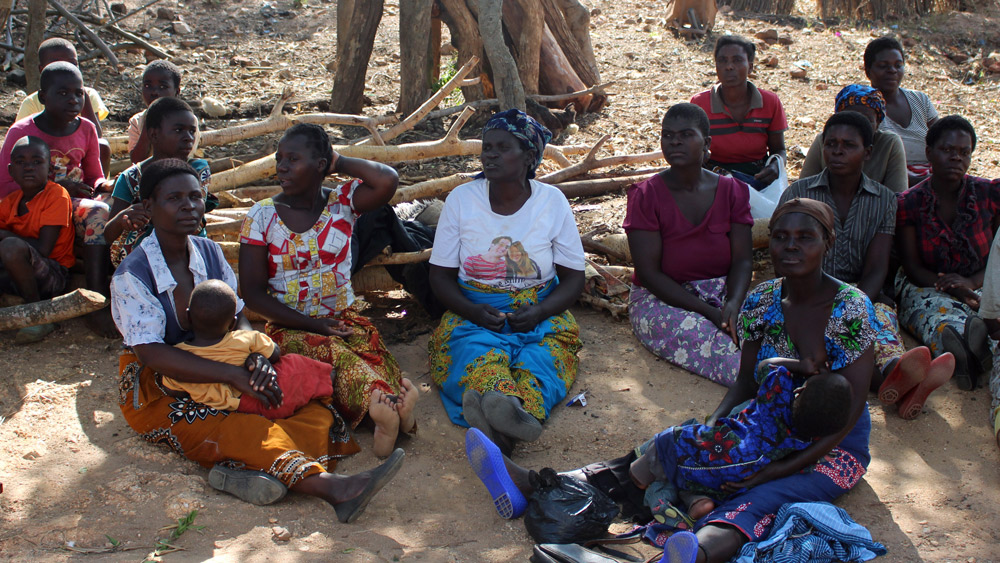The world is currently undergoing a global migration crisis. UNHCR, the UN Refugee Agency, estimates that the number of displaced persons reached a record high of 70.8 milllion in 2018. Fleeing their homes for a variety of reasons, displaced populations are susceptible to experiencing long-lasting states of limbo. Whether it be from violence, persecution, human rights violations, or impacts of climate change, 25.9 million refugees around the world face discrimination, deprivation, and chronic uncertainty, and are often forced to rely on prolonged humanitarian aid. As of 2017, UNHCR estimates that refugees live in protracted displacement for an average of 26 years.
Without livelihood programs, such as those implemented by UNHCR, Trickle Up, and other members of the Poverty Alleviation Coalition, displaced populations, faced with a lack of opportunities to earn a living, fall into cycles of dependency and long term poverty. Those who have been displaced for over 5 years can suffer from generational poverty as a lack of legal recognition and documentation in host countries limits the opportunities for education and employment of children in protracted displacement. With no resources to build their own self-reliance, children of refugees, much like their parents, remain in a state of legal limbo. Without comprehensive interventions, refugee families remain in protracted situations for generations, and have no sustainable paths out of poverty.
Since 2013, Trickle Up has been building the capacity of UNHCR and local implementing partners to deliver Graduation to refugee and host community families, with pilots in 8 countries in a variety of contexts (urban, rural, camp, and settlement). The Graduation Approach is a bottom-up, household-centered, targeted intervention that puts vulnerable families on a path out of extreme poverty. Developed over the past decade to address the unique needs of vulnerable and extremely poor people, the Graduation Approach has since been proven effective in humanitarian contexts, making it a powerful tool to build the livelihoods of populations affected by displacement.

As a response to the growing number of displaced persons, Trickle Up officially joined the Poverty Alleviation Coalition, convened by UNHCR and the World Bank’s Partnership for Economic Inclusion (PEI). Alongside 10 other NGOs, the Coalition aims to promote refugees’ economic and social inclusion with their respective host communities, thus increasing self-reliance by providing sustainable income-generating opportunities.
The Coalition aims to help 500,000 refugee and host community households in 35 countries, with two participant cohorts planned for the 2020-2025 funding period. Using the Graduation Approach, a targeted, 18-36-month long intervention to support alleviation of extreme poverty in the most vulnerable populations, the Coalition will guide member organizations in scaling-up current projects as well as implementing new ones. The approach, praised by The New York Times’ Nicholas Kristoff, has shown consistent success rates of 70-90%.
The Coalition will support all members through a “Parallel Funding” model, where donors individually fund implementing NGOs, and these parallel funding mechanisms wholly support the Coalition’s mission. The hope is that with a strong Graduation community, fundraising opportunities to support efforts addressing the complicated nexus of graduation and displacement will grow.
Graduation is a viable approach for people living in extreme poverty, as it lays the stepping stones for the path out of extreme poverty. By pulling together institutions and NGOs that are committed to poverty alleviation, the Coalition maximizes the reach of Graduation for persons of concern, including refugees, asylum-seekers, internally displaced people, stateless people, returnees, and host communities.
The Coalition is already helping organizations work together. In Jordan, Trickle Up has been able to lead organizations in implementing Graduation across individual projects. “We’re all working together on Graduation as a whole. With this collaboration we can only make the Graduation practice stronger,” says Shoshana Hecker, Senior Director of Refugee Affairs at Trickle Up.
Throughout this process, the UNHCR and World Bank PEI will act as the convening partners, facilitating access to populations of concern, promoting joint programming and fundraising, and monitoring and evaluating the Coalition’s programs.


